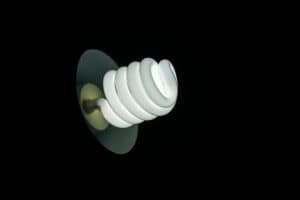Air purifiers monitoring and improving indoor air
The air we breathe is essential for our survival. However, with increasing air pollution levels, our indoor air quality is often compromised. This has led to a rise in respiratory illnesses, allergies, and other health problems. But worry not, with the advancements in technology, we now have a solution – air purifiers. These devices have gained popularity in recent years with the promise of monitoring and improving indoor air quality.
The Need for Air Purifiers
According to the World Health Organization (WHO), poor air quality is responsible for around 4.2 million deaths every year. As we spend most of our time indoors, it is crucial to ensure that the air we breathe is clean and healthy. Indoor air can be polluted due to various factors like smoking, cooking, cleaning products, pet dander, and outdoor air pollution entering the premises. This is where air purifiers come in.
Air purifiers work by filtering out pollutants and contaminants from the air, making it safe to breathe. They can effectively remove harmful particles such as pollen, dust, smoke, and mold spores, which can trigger allergies and respiratory problems. They also reduce the concentration of volatile organic compounds (VOCs) that release toxins into the air, improving the overall air quality.
Moreover, air purifiers also play a crucial role in monitoring indoor air quality. They are equipped with sensors that continuously measure the levels of pollutants in the air and adjust their settings accordingly. This ensures that the air purifier is working at its optimum level and providing the best quality of air.
The Working Principle of Air Purifiers
Air purifiers use various techniques to remove pollutants from the air. One of the most common methods is the High-Efficiency Particulate Air (HEPA) filter, which can trap particles as small as 0.3 microns, making it effective against allergens and pollutants. Some air purifiers also use activated carbon filters, which are great for removing odors and chemicals.
Other advanced techniques used in air purifiers include UV-C light, which can kill bacteria and viruses, and ionization, which releases negatively charged ions that attach to airborne particles, making them heavy and fall to the ground. Some air purifiers also come with multiple filters and can switch between different modes depending on the level of pollution in the air.
The Benefits of Air Purifiers
1. Improved Indoor Air Quality
As mentioned earlier, the primary benefit of air purifiers is their ability to improve indoor air quality. They are especially beneficial for people suffering from allergies, asthma, or other respiratory problems. By removing allergens and pollutants from the air, air purifiers provide a clean and healthy environment for everyone.
2. Reduces Health Risks
Poor indoor air quality can lead to various health issues, including respiratory illnesses, headaches, fatigue, and even more severe conditions in the long run. By monitoring and purifying the air, air purifiers can reduce the risk of these health problems, making it an essential device for every household.
3. Eliminates Odors and Harmful Chemicals
Air purifiers equipped with activated carbon filters can effectively remove odors from the air, making the indoor environment fresh and pleasant. They also reduce the concentration of harmful chemicals, making the air safer and healthier to breathe.
Choosing the Right Air Purifier
With a wide range of air purifiers available in the market, it can be overwhelming to choose the right one. Here are a few factors to consider before making a purchase:
1. Room Size
The size of your room is an important factor to consider as it determines the capacity of the air purifier. Make sure to check the square footage rating before buying an air purifier.
2. Type of Filter
Different types of filters serve different purposes. If you have allergies, a HEPA filter would be the best choice. For removing odors, activated carbon filters are ideal. Consider your specific needs before making a decision.
3. Noise Level
If you plan to use the air purifier in your bedroom or office, you may want to consider its noise level. Look for models with a low decibel rating to avoid disruptions.
In conclusion, air purifiers not only monitor and improve indoor air quality but also provide numerous health benefits. With the right type of air purifier, you can breathe in clean and healthy air, reducing the risk of health problems and improving your overall well-being. So invest in an air purifier today and enjoy a healthier and fresher environment.










